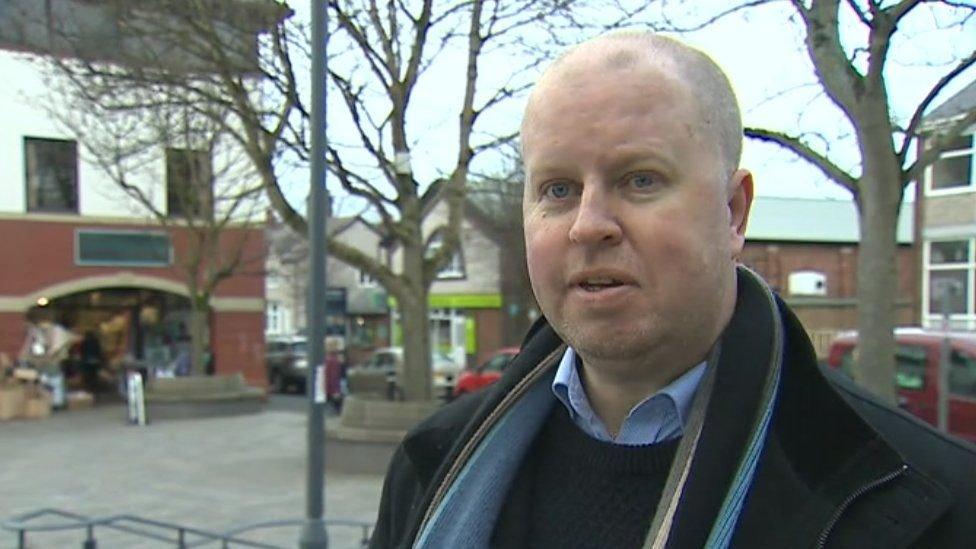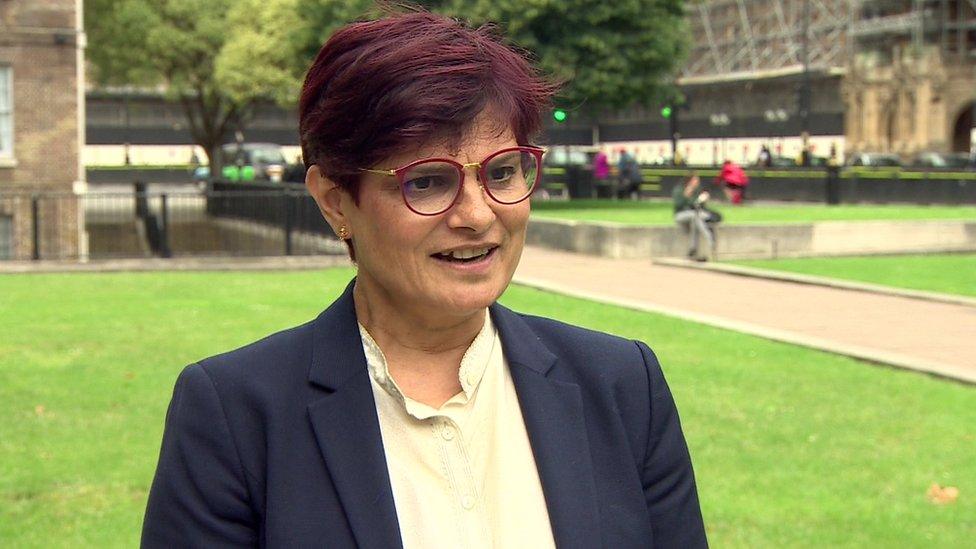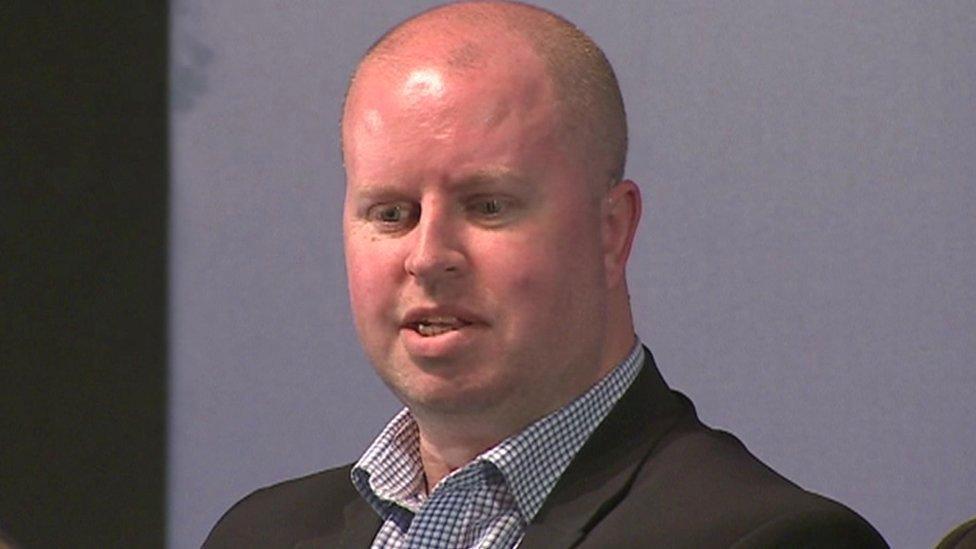Rob Roberts: Harassment MP could face recall under Labour proposal
- Published

Rob Roberts has been suspended from the House of Commons for six weeks
Labour is proposing a change in the rules that, if approved, could see Delyn MP Rob Roberts facing a recall petition and possible by-election.
He was suspended from Parliament for six weeks in May for sexual misconduct but did not face a petition.
This was because sexual harassment and bullying cases are dealt with by an independent panel under Commons rules.
If approved, Labour's proposal, external to end a so-called legal loophole could apply retrospectively to Mr Roberts.
The Independent Expert Panel found Mr Roberts had sexually harassed a member of his staff.
He has apologised and said he would "continue to serve" his constituency.
Mr Roberts can return to the House Of Commons on Thursday to sit as an independent MP, as the Conservative whip was withdrawn from him in May.
Currently, automatic recall petitions on whether the MP should face a by-election are only triggered by cases looked at by the House of Commons Standards Committee, and where an MP is suspended for more than ten sitting days.
However, complaints for bullying, harassment and sexual misconduct are investigated by the separate panel, and a petition is not triggered even if a similar suspension results.

Labour's Thangam Debbonaire has put forward the motion to change the rules
UK government ministers are considering plugging this loophole in the rules so MPs suspended for sexual misconduct could in future face a recall petition in their seat.
However, BBC Wales understands that the UK government does not wish any changes to the rules to apply retrospectively to cases that have already been judged.
This would mean that MPs such as Rob Roberts would not face a recall petition even if the rules changed in future.
But senior Labour politicians, including party leader Sir Keir Starmer, Angela Rayner and Thangam Debbonaire, have proposed a rule change that would close this loophole and allow it to apply to previous cases.

Rob Roberts is allowed to return to the House of Commons on Thursday
It would mean that sitting MPs such as Rob Roberts MP, who received a six-week suspension for sexual harassment, could face a recall petition in their seats if Labour won the agreement of the Commons.
Labour has tabled a motion in Parliament to put forward these proposed changes, but there is not yet a set date for when it could be debated.
Ms Debbonaire, shadow leader of the House of Commons, told the BBC: "If this rule had been in place, if that loophole had been closed, the people of that MP's constituency - in this case the people of Delyn - would have been able to mount a recall petition if they chose to decide for themselves if they want this person to continue being their MP."
She agreed that "retrospectivity is very, very tricky ground" but said the government "only this week has introduced legislation with retrospective effect - that's in the building safety bill".
"It's also possible to get legislation turned around really quickly when the government wants to," she said, highlighting a licensing rule change to allow pubs to stay open later than usual on Sunday for customers to watch the Euro 2020 final.
"If they can do it for the football they can do it for sexual harassment of a member of parliamentary staff - that really, really matters," Ms Debbonaire said.
"I think if the government is serious about standards in public life... they will allow time for the debate on my motion," she added.
"If they don't, the only good reasons I can accept are that they bring their own motion and they deal with this problematic MP."
Prime Minister's Questions
The matter was raised by Warwick and Leamington Labour MP Matt Western during Wednesday's Prime Minister's Questions.
He said: "The public will clearly welcome the government's move to introduce emergency legislation for pubs and bars tomorrow to be able to stay open on Sundays later.
"However the public will wonder why tomorrow that the member for Delyn will be allowed to return to this House and not be subject to a recall despite being a serious case of sexual harassment."
Boris Johnson said that the MP's sanction "has come to an end" and that "he is not a Conservative MP".
Delyn was one of the "red wall" Labour seats in north Wales the Conservatives won at the 2019 general election.